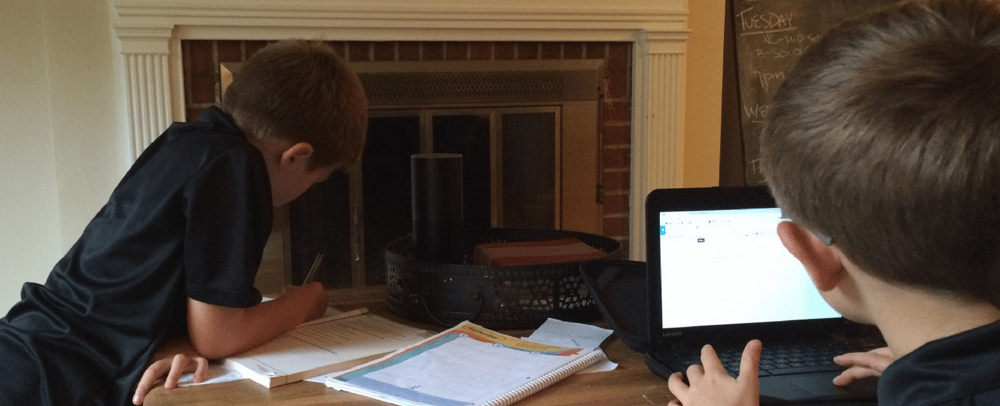After school is homework time at my house. The kids are working on their homework, and as I tell them, “Mom has some homework too.” So they work through math problems, reading assignments, and memory work while I tackle emails or other work projects that need to be addressed before the end of the day. Recently, during our homework time, I perked up when my eight-year-old said, “Alexa, open the Small Catechism.” Alexa greeted him, then Connor asked, “Alexa, what is the Second Commandment?”
Since it launched, I’ve thought that the Alexa app for the Small Catechism was really cool. But what I really like is that my son has recognized that this tool suits his learning style. Where my ten-year-old would rather memorize by reading . . . thinking . . . reading . . . then speaking, my eight-year-old prefers the audible cues and ability to hear the words that Alexa provides (because that’s “way more fun than listening to Mom talk”). He listens . . . thinks . . . tries . . . then repeats until he can say it well and gets the thumbs-up from me that he’s ready to recite it to his teacher.
Even more meaningful than this encounter was what happened on the drive to school the next morning. As we made our way to school, we were practicing his memory work for a final time. My son grabbed my phone and pulled up the Small Catechism app. After reviewing the memory work assigned for the day, he started reading through other commandments and meanings. As he read, he started asking questions. “Mom, what does it mean to bear false witness?” “Mom, what does entice mean?”
Simple curiosity about things he was reading sparked a great conversation. As I answered his questions, I was able to use potential scenarios that he might encounter in school to help him understand the meanings, and we were able to dig into conversations about how he should react in those situations.
It’s important to me that I’m involved with the boys as they work on memory work---asking them questions, listening as they practice, and prompting them when they need to work on a particular piece of the assignment. But I’m grateful that the number of tools designed to help teach the catechism is growing. Each of my sons has a different learning style, but I’ve found that there is a tool that suits each of them and makes it fun for them to commit the catechism to memory.
Here are five great tools for learning the catechism:
- Luther’s Small Catechism for Amazon Echo. Asking to open the Small Catechism will not only recite the catechism to you, but when you enter memory-work mode, Alexa will test your knowledge.
- Small Catechism app for iPhone and Android. Running to a soccer game? Need to refresh your memory on the way to school? Open up the app, and you’re set. Available in the app store for Apple and Android.
- Printable memory and flash cards. If you like to learn with physical flash cards but don’t want to make your own, these are a perfect solution. They come in a Spanish version too!
- Luther’s Morning and Evening Prayer posters. We have these hanging up in the hallway outside the boys’ bedrooms. They’ve helped the boys, especially Connor, memorize the prayers and be excited to pray them. Download the Morning Prayer here and the Evening Prayer here.
- Luther’s Small Catechism flash cards in Tinycards app. My ten-year-old is slightly competitive. He loves this app.
As parents, it’s an awesome (and daunting) thing to be responsible for teaching your children the faith. It’s also incredibly rewarding to be involved as the kids are learning. It’s great quality time, it's setting them up with a strong faith foundation, and it gives us a chance to recall (or relearn) key verses and faith pillars for ourselves.















